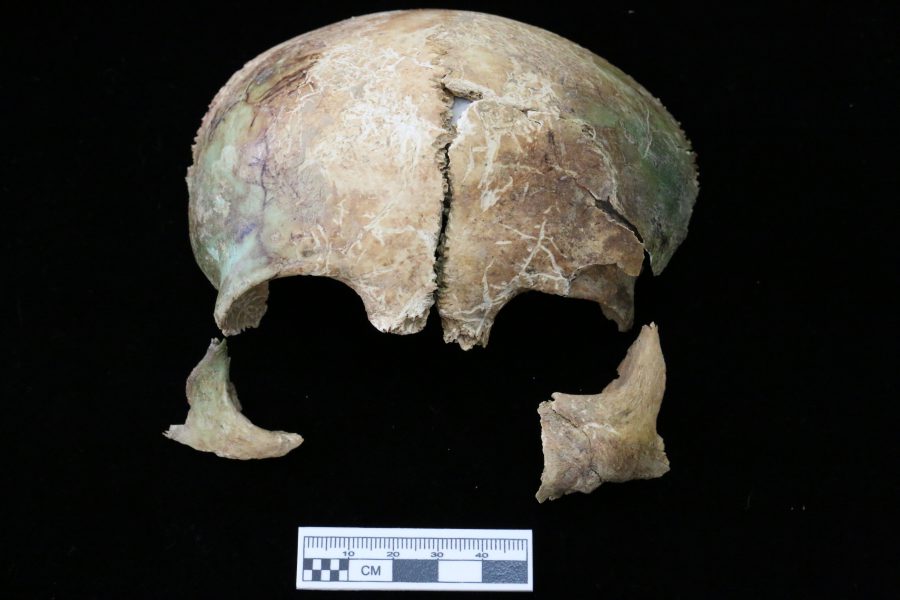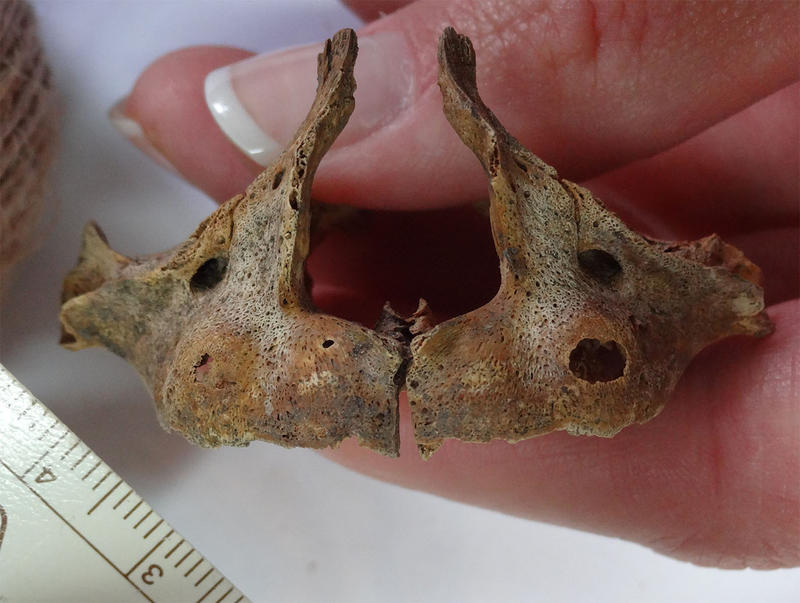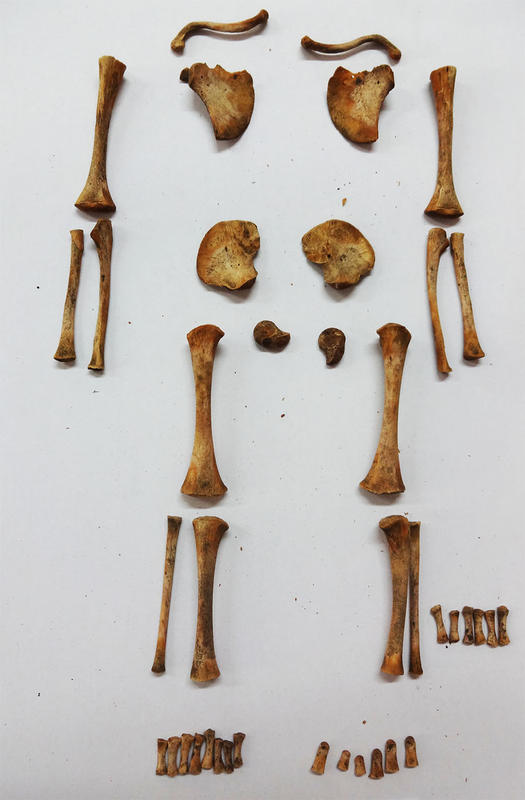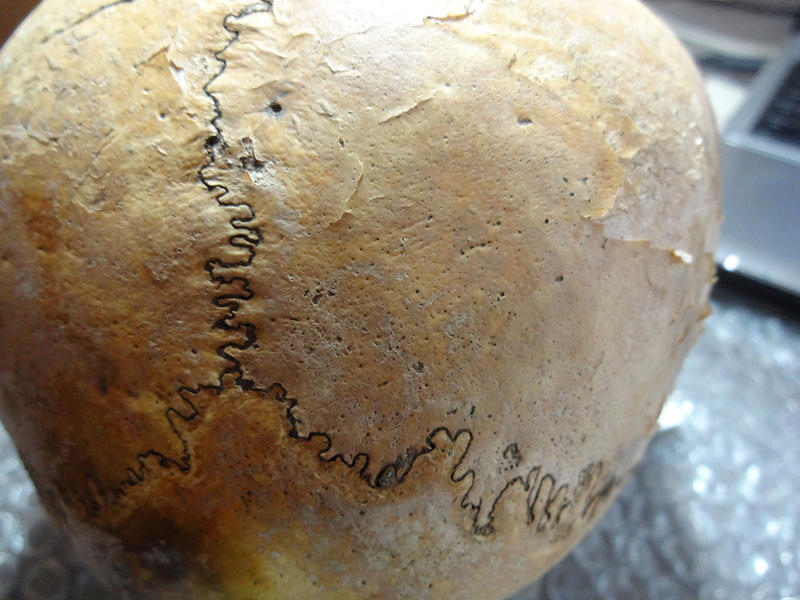Fieldwork





Location: Odorheiu Secuiesc (Transylvania, Romania)
Season: July 7, 2024 to August 3, 2024
Application Deadline: May 1, 2024
Deadline Type: Exact Date
Website: https://www.archaeotek-archaeology.org/juvenile-osteology-laboratory
Program Type:
Field School, Volunteer
RPA Certified:
No
Affiliation:
University of South Florida (USA), Bio/Archaeological Techniques and Research Centre - BioArch Canada, Haáz Rezső Museum (Romania)
Project Director:
Dr. Jonathan Bethard (University of South Florida); Dr. Andre Gonciar (BioArch Canada); Dr. Zsolt Nyaradi (Haaz Rezso Museum, Romania)
Project Description:
Recent contributions to bioarchaeological scholarship have devoted considerable treatment to the analysis of children’s skeletons from both archaeological and contemporary (i.e., forensic) contexts. The aim of this workshop is to provide participants with an intensive review of juvenile osteology and an overview of the ways in which this kind of unique information is interpreted by bioarchaeologists. During the workshop, participants will have the chance to study the growth and development of the human skeleton across various juvenile age cohorts. Most importantly, participants will have the opportunity to gain experience with the analysis of juvenile skeletal remains.
The drastic change during the late 16th early-17th century Transylvania, both in mortuary treatment/practices and apparent death rate/profile, generating large concentrations of infant burials inside churches that were abandoned shortly after that, seems to indicate that the condition of infants (fetal, perinatal, neonatal) as well as children has undergone a transformation not only in terms of health but also socially, culturally and spiritually.
Our research collections come from five excavated medieval lost churches around the town of Odorheiu Secuiesc, as well as our on-going “Lost Church” excavation at Patakfalva (RO: Valeni). The state of preservation has allowed us to retrieve over 1000 juvenile skeletal remains, ranging from pre-natal to sub-adult.
In addition to intensive hands-on laboratory instruction and research, participants will also contribute to numerous seminar discussions and hear lectures on topics related to the bioarchaeology of children. Topical areas to be included involve the following: an overview of the bioarchaeology of children, growth and development, weaning and dietary stress, juvenile trauma and pathology, as well as reconstruction and interpretation of infant mortality. Moreover, seminars and lectures will introduce how novel technological applications (i.e., histology, CT imaging) have been utilized by bioarchaeologists who study juvenile remains.
The research workshop will culminate with the presentation of each set of results at the Eleventh International Student Colloquium on Osteology and Bioarchaeology hosted by the Haaz Rezso Museum. Participants who want to pursue and expand their summer research are encouraged to present their papers at the SAA, AAPA and CAPA.
Period(s) of Occupation: Middle Ages, Human (Juvenile) Osteology
Notes:
Osteological laboratory intensive training and analysis of exceptionally well preserved juvenile remains, ranging from prenatal to preadult.
Project Size: 1-24 participants
Minimum Length of Stay for Volunteers: 4 weeks
Minimum Age: 18
Experience Required: Basic knowledge of human morphology and anatomy is preferred (see our Adult Osteology Research Laboratory Workshop or equivalent) but not required.
Room and Board Arrangements:
Students and volunteers will be housed in Odorheiu Secuiesc, a small and beautiful city, rich in history and culture. It is cosmopolitan town, situated in central Transylvania. Students and volunteers will be housed in double or triple occupancy rooms within 45min walking distance from downtown Odorheiu Secuiesc (or a 10min cab ride) and 15min away from several supermarkets/mall. Breakfast and dinner will be served Mon-Fri in the hotel restaurant. Participants will sample a variety of amazing home cooked Romanian and Szekler traditional meals. Students and volunteers are responsible for their own lunches in the field. Beware that Romanian cuisine is meat oriented, but we do our best to accommodate vegetarian dietary requirements (however, we are not able to offer a vegan or gluten-free meal option). There are plenty of small stores, supermarkets, farmer markets, where you can purchase fresh cheese, various meat products, garden vegetables, bread, drinks, and anything else you might need. Odorheiu Secuiesc provides all the amenities of a small European city, which includes hospitals an international bus station, train station, and all the stores you might need. Program cost: $2,695 (additional USF tuition fees apply, if registering for credit)
Academic Credit:
3-6 undergraduate/graduate academic credits credits are available, if interested, through University of South Florida - additional USF tuition applies. Contact directly University of South Florida - Education Abroad for details .
Dr. Jonathan Bethard or Dr. Andre Gonciar
University of South Florida
Tampa
The AIA is North America's largest and oldest nonprofit organization dedicated to archaeology. The Institute advances awareness, education, fieldwork, preservation, publication, and research of archaeological sites and cultural heritage throughout the world. Your contribution makes a difference.